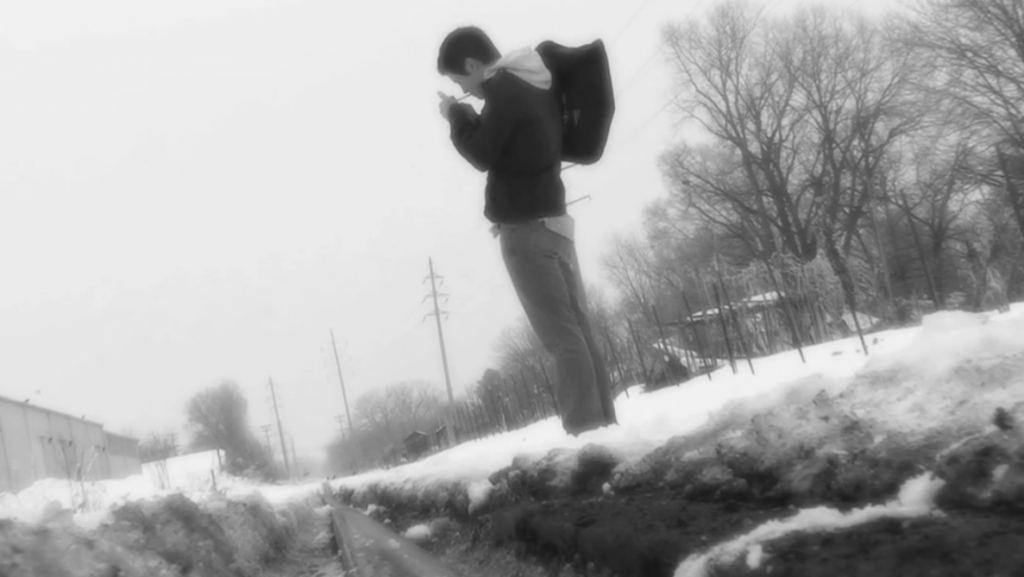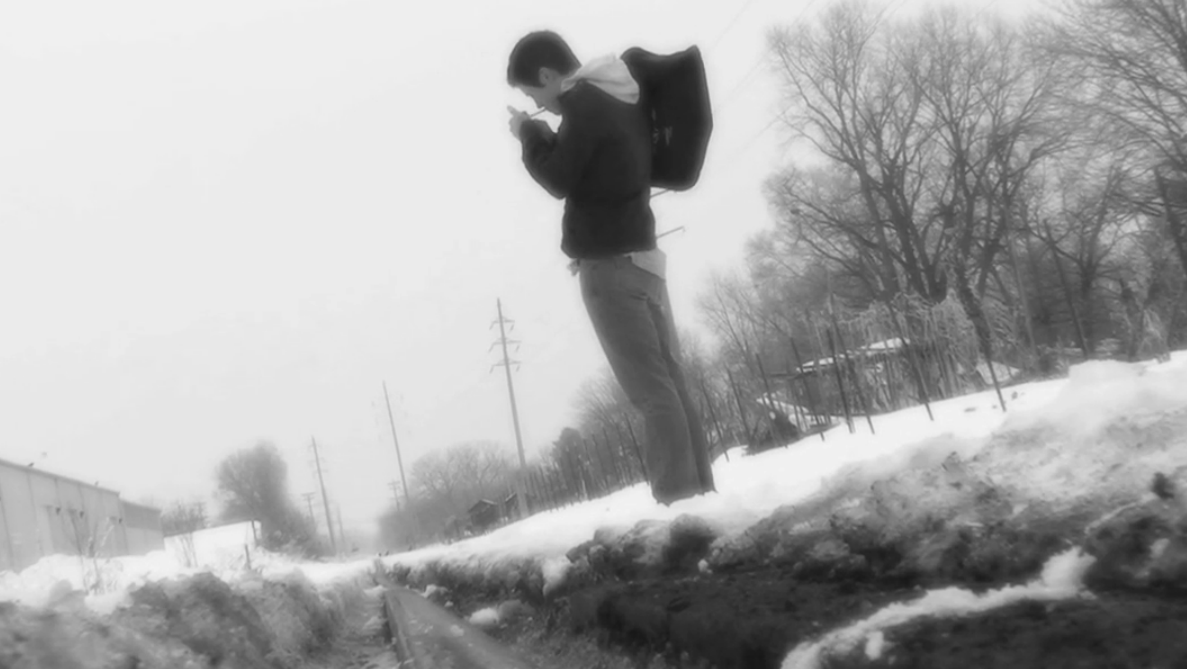
Redemption makes for easy thematic territory in pop culture’s prisons, and while it isn’t immediately clear what local director Rob Matsushita is aiming for with his web series Chapel, the series’ first episode, “Audited” tackles redemption in its most personal form: the complete destruction of the self.
In mere minutes, “Audited” makes for a reflective deconstruction and resurrection of Ashley Banks (Emily Mills), who’s just finished serving out a five year sentence for a crime that remains a mystery, at least for now. In fact, Matshushita withholds many details; the episode’s location is one example with the fictional (?) “Midstate Women’s Correctional Facility.” What Ashley does reveal is bits and pieces of her former self and the checkpoints along her violent metamorphosis.
The episode’s primary storytelling device takes the form of Ashley’s own voiceover, though it’s often overburdened with “TMI” levels of detail. Mills sells narration that’s at first charming and then tiresome; Ashley has kept a crumpled undelivered love letter from high school, although once again, any explanation of why is interrupted by self-correction. Beneath the rather trivial details, Ashley recounts prison life as a series of beatings and drug addictions, or as she puts it, a succession of “firsts.”
Juxtaposing the dichotomy of Ashley’s former self with her new drug dealing persona “Chapel” — a moniker presumably chosen from the blunt form her father’s disowning takes — is enough to raise intrigue about this series’ direction, even if its pulpy aspects often feel too on the nose. The sardonic sentimentality of a piano under smart ass dialogue slips into stale territory, borrowing from the wryness of Leonard Shelby’s “devil may care” attitude in Memento or the half-hearted narration in virtually any Guy Richie character. Chapel’s constant dismissal of the viewer’s attention begs the question of why so many details were given in the first place, but “Audited” smartly swerves back to its own “cut the bullshit” personality in fitting fashion. As the episode closes out, Chapel warns of future decapitations and drug deals that will go wrong. Matsushita gets that his title character is no longer bound to telling us how much she’s changed. She’s got things to do and skulls to bust in.
As is often intrinsic to independently-financed productions, the cinematography in “Audited” lacks inspiration and a consistent visual vocabulary. A beautiful, cold shot of Chapel as she trudges away from the camera is undermined by dozens of sloppy angles and a command of the camera that’s both out of focus and too free form. Still, Matsushita has a strong understanding of sound and stylistic transitions, a searing realization of Chapel’s inner psyche that’s at least in keeping with his storytelling’s subjectivity. As the lead, Mills is plenty capable of such an extreme transition within a truncated timespan, and if there’s one reason to stick with Chapel — as we’ll be doing regularly now — it would seem it’s her.

